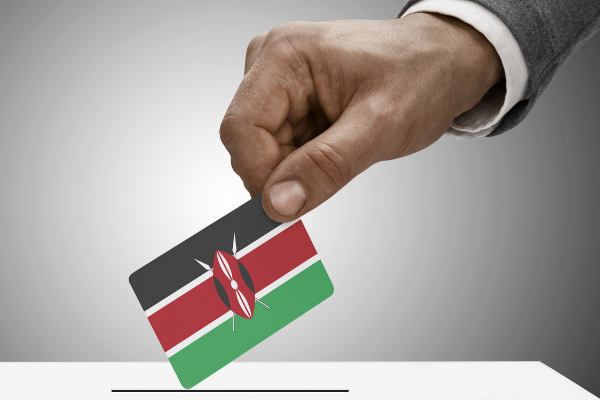
Will Kenya Become East Africa’s Democratic Model?
- Category: Governance
- Date 08-08-2010
- 960 views
The fact that Kenya held a peaceful referendum in a free and fair election shows that greatness does not lie in never falling at all but in rising up every time we fall. Kenya is a country with a tattered international image. This is as a result of the 2007 general elections in which Mr Emilio Mwai Kibaki was dubiously declared winner of that year’s presidential polls.
Kibaki’s nemesis, Raila Odinga, promptly disputed his victory, rousing his fretful supporters to stage protests. These soon degenerated into violent rampage, directed at Kibaki’s followers, especially members of his clan living outside their traditional homeland.
At the same time, Kibaki’s loyalists retaliated by attacking the groups that favoured Raila Odinga’s candidature, especially the Luo and Kalenjin. The conflict, which was primarily of political nature, shortly assumed a tribal slant. Attacks and counterattacks led to destruction of more than thirteen hundred lives as well as loss of vast amounts of property.
Kenya has since endured the scandalous ignominy of ethnic bigotry that arose at a time when East Africa was steadily advancing towards a borderless region and the world rolling into a global village.
Three years down the road, however, the same country has conducted what can be rated as the most competitive but peaceful, free and fair election in Africa. During the campaigns and voting process, members of the same government campaigned on opposing sides of the debate.
As a cabinet Minister for Higher Education, Mr William Ruto did not fear to follow his conscience and provide leadership to the ‘no’ camp. This is the group that rallied Kenyans to reject the proposed constitution. He was not harassed for doing that.
He was treated with respect, regardless of occasional strategic jabs that go with political campaigns. When the ‘no’ camp lost the vote, Mr Ruto graciously conceded defeat on behalf of his camp, and promised that the points of contention could be resolved during the implementation phase.
Daniel Arap Moi, the former President, campaigned on the ‘no’ side but his rallies were not dispersed with teargas. Religious leaders spoke out strongly against parts of the proposed constitution but they were not attacked.
Your columnist has witnessed campaigns in Uganda where anyone that does not agree with President Museveni can easily be blocked from campaigning, harassed by police and military forces, branded a terrorist or a criminal of sorts, or arrested. This is possibly happening elsewhere in Africa.
The new constitution approved a few days ago can be seen as a deliberate effort by Kenyans to throw away the country’s corrupt and violent past and face the future with a fresh standing.
This is a mark of a dynamic society. It was an honourable step by President Mwai Kibaki; possibly the best gift he has given his nation. He has just done his part. The only thing The Comrade wants him to do is to relinquish his office and allow an opportunity for another Kenyan to become President and implement the new constitution.
You do not want the Ugandan experience where someone excites the population with a constitution during his nascent days in government. When the same constitution seems to stand in his way, however, he tears it down to advance his private interests.
In 2005, President Museveni of Uganda engineered a constitutional amendment by bribing the gutless members of parliament with five million shillings each, to remove Presidential term limits from the country’s supreme law, to allow him stay in power.
Uganda adopted a new constitution in 1995 at a time when President Museveni would have been bowing out of office. A new constitution, he believed, was his personal initiative and thus no one could understand how to implement it. So, he had to stay on and on and on and on!
One hopes that President Mwai Kibaki does not become such a good student of East Africa’s strongman that rules Uganda. If he does, Kenya will have wasted resources coming up with a new constitution. When all is said and done, however, the country with the most despised democratic record may suddenly become East Africa’s democratic model.
By Venansio Ahabwe
Source: The Comrade, The Guardian on Sunday
